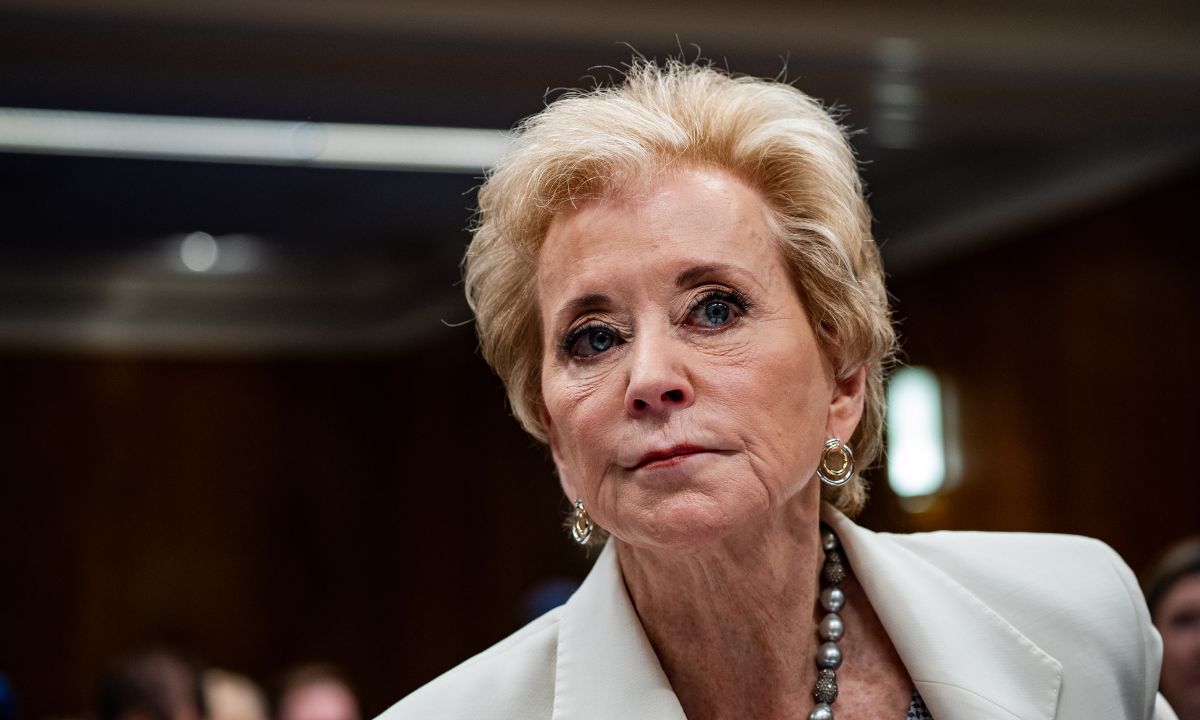Child care centers, which frequently house children too young to receive the highly infectious vaccine, are at risk of exposure and illness as measles spreads throughout the United States.
The health of children is the most pressing issue during an exposure, but it’s not the only one. Parents may have to keep their child at home for a three-week quarantine, which leaves them frantically trying to find a way to work without dependable child care.
A mother in Iowa is bringing to light the complexity of the situation. A visitor to Martha Martin’s 9-month-old son’s daycare in Cedar Rapids later tested positive with the virus, prompting her to post on social media about the repercussions. As of July 15, the person had received a vaccination and was one of seven measles cases in Iowa. It doesn’t seem like all of the infections are related.
Public health officials took a few days to inform the daycare about the exposure, but Martin’s son, who was too young to receive his first dose of the MMR vaccine, was able to acquire immunoglobulin, a post-exposure antibody. Her youngster was unable to receive an emergency MMR vaccination, which can be administered within 72 hours after exposure, because the alarm was sent too late.
Martin stated that she and her spouse took their son to the ER for the antibody treatment, and she has been given conflicting information regarding whether the couple will have to pay for it out of pocket. Immunoglobulin shots were administered to other daycare participants at a clinic coordinated by the county public health agency and UnityPoint Health St. Luke’s Hospital. Questions concerning the cost of the vaccinations were not answered by a hospital system representative, although they did confirm those data.
According to Dr. Tina Tan, a pediatric infectious diseases specialist and president of the Infectious Diseases Society of America, daycare centers can be a very bad site to have a measles outbreak. present will be infants present who are too young to be vaccinated against measles. Additionally, kids have a very high chance of developing a severe case of measles if they contract it.
Due in part to how long an individual may be able to spread the disease, the state of Iowa maintains a 21-day measles quarantine rule for non-immune people. However, Martin explained that because the antibody prolongs that time, the daycare told the couple to keep their son at home for 28 days.
In a TikTok post that has received 2.5 million views, Martin stated, “I’m not sure what we’re going to do about that, not sure what we’re going to do about me going to work, my husband, everything like that.”
Martin first answered The 19th’s request for an interview before cutting off contact.
At the Iowa day care, a senior employee who took a call sent questions to state and local public health representatives. After hours and hours of contact tracing, a public health department representative for Linn County, Iowa, stated that the department still keeps an eye on the daycare and other exposure sites as needed. The daycare is open, according to an Iowa Department of Health and Human Services representative, who also emphasized the procedural paper.
Although Martin is aware that symptoms sometimes take time to manifest, her son seems to be doing well right now. Although her job has been supportive, she stated that in order to care for their son, she will utilize her vacation days and her husband would take unpaid time off. Martin often made the same point in her posts.
“Get your kids vaccinated,” she added, adding, “You are hurting everyone else by not getting vaccinated, not just your kids.”
According to news sources, a measles outbreak in West Texas spread to a Lubbock daycare in late March, when a sick child infected many youngsters. Some parents were instructed to quarantine their children for 21 days at home.
The Texas daycare’s co-owner informed a local news site that the facility took a variety of steps to keep its doors open, but a spokeswoman did not immediately reply to a request for comment. This required separating vulnerable children into a classroom while they were still enrolled in daycare and sending some kids home.
“It was necessary to weigh the risk of exposure against the need for income because sending a baby home for 21 days is a huge burden on working families,” said Katherine Wells, head of the Lubbock Health Department, in an email.
When it comes to managing infectious disease outbreaks, the child care system in America is subject to diverse levels of regulation, with state-specific laws differing.
Ruth Friedman, a former head of the Federal Office of Child Care (OCC), is currently a senior fellow at the progressive think tank The Century Foundation. According to her, day care facilities operate on thin profit margins, and infectious diseases like measles could deal a serious financial blow. This situation is similar to the COVID-19 pandemic, when some centers were forced to close or cut back on services.
Destabilizing child care enrollment and attendance can soon result in programs collapsing and child care becoming inaccessible to a community as a whole, she added.
According to Wells, some parents were upset that their child was placed in quarantine, while others claimed they were just afraid that their kids would be exposed to the illness, which can cause serious health problems like pneumonia, brain enlargement, and even death. Complications are more likely to occur in pregnant women and children under five. Additionally, almost one in five measles patients who are not vaccinated end up in the hospital, according to the Centers for Disease Control and Prevention.
Children usually receive their first MMR injection between the ages of 12 and 15 months, followed by a second dose between the ages of 4 and 6. Children aged 6 months to 1 year who reside in or visit an outbreak region or are going abroad are eligible for an earlier vaccination.
Health officials in Iowa have started advising parents to think about giving their kids an expedited vaccination schedule, which might include the second MMR shot as soon as 28 days following the first dose. The effectiveness of two doses against measles is 97%, which is at a 30-year high nationwide.
Daycare centers have long been at danger for measles. A Philadelphia daycare reported an outbreak between December 2023 and January 2024, which was partly caused by a parent who returned a child under quarantine to daycare even though they knew the unvaccinated child had been exposed to measles. Both the parent and the child subsequently tested positive for measles.
The likelihood of additional outbreaks in child care settings will rely on a number of factors, including the facility’s vaccination rates and how well it follows its illness policies, according to Dr. Ericka Hayes, senior medical director of infection prevention and attending physician at Children’s Hospital of Philadelphia. According to her, children can spread measles for several days before the main symptom appears, but fever, cough, runny nose, and red, watery eyes are among early symptoms that can mimic those of a common viral infection.
According to her email, it is equally crucial to keep children out of daycare if they are ill.
According to Friedman, the Philadelphia case foreshadows a possible conflict that can arise when parents balance work obligations that guarantee they can cover their daily and monthly expenses with health concerns. Employers are not required by federal law to provide paid sick leave to their employees; instead, states are in charge of this. Despite the wishes of the electorate, states are occasionally repealing those measures.
There is conflict over what to do with your child if you have to work. “I said,” she said. From the standpoint of the child care industry and families, I believe the ramifications might be extremely concerning.






